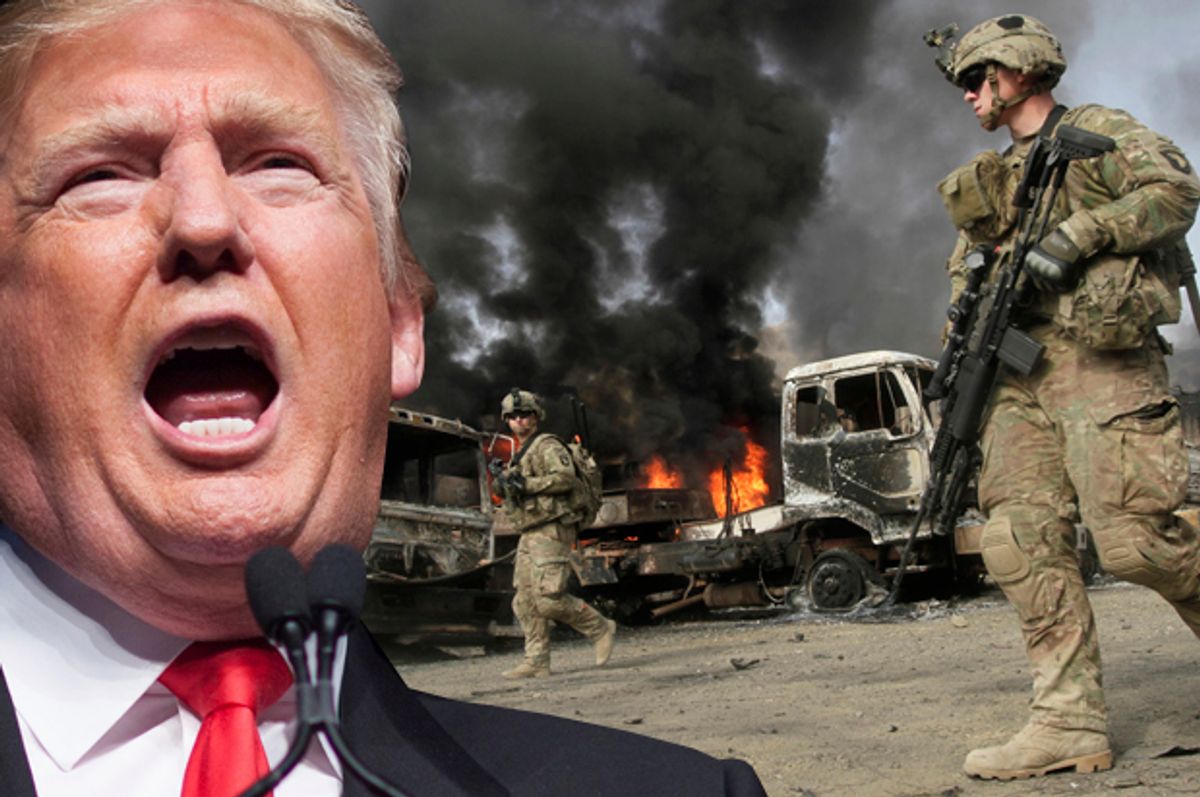President Donald Trump may have recently refused to sign off on the plan by his national security adviser, H. R. McMaster, to escalate the war in Afghanistan. But that doesn't mean Trump's mind is entirely closed off to the possibility of sending more American troops there.
Trump has talked with President Ashraf Ghani about possible opportunities for American mining companies in Afghanistan, according to a report by The New York Times. Three of Trump's senior aides also met with Michael N. Silver, an executive at the chemicals firm American Elements, about the possibilities for mining rare-earth materials in that country. American officials initially estimated that Afghanistan's mineral deposits could be valued at as much as $1 trillion, although that number has been revised downward since.
Trump has been generally skeptical about increasing troop levels in Afghanistan, but would use the opportunity of extracting minerals as the "one justification for the United States to stay engaged in the country," according to the Times.
"It would be dangerous to use the potential for resource exploitation as a selling point for military engagement,” Laurel Miller, a senior analyst at RAND, told the Times. Miller also served as the State Department's special representative for Afghanistan and Pakistan up until last month. "The barriers to entry are really quite considerable, and that kind of argument could fuel suspicion about America’s real intentions in Afghanistan," she added.
Trump's foreign policy is murky, but it's clear on one issue: He has been willing to support engagement so long as the U.S. can strip a country of its natural resources. "I'd do one thing, either I go in and take the oil or I don't go in at all," he said in a previous interview. Though the strategy in Afghanistan would be mineral extraction, not oil, the same concept applies.
"So, you know, in the old days when you had a war," Trump said in a multiple previous interviews, "to the victor belong the spoils."
The Times elaborated on Trump's potential motives:
But for Mr. Trump, as a businessman, it is arguably the only appealing thing about Afghanistan. Officials said he viewed mining as a “win-win” that could boost that country’s economy, generate jobs for Americans and give the United States a valuable new beachhead in the market for rare-earth minerals, which has been all but monopolized by China.
Trump seems to be following the path initially mapped by Blackwater founder Erik Prince, as Salon noted last month:
Prince’s first innovation is to do away with civilian-military control administered by the Department of Defense and overseen by civilian, elected leadership, as is currently in place, and replace that apparatus with an armed corporation.
The second innovation is to denationalize the armed force projecting the corporation’s power. Americans are expensive. Blackwater personnel regularly received six-figure salaries for work in Iraq. Prince envisions a sweatshop-ization of the mercenary force, relying on the cheap labor available in the ravaged domestic labor market of war-torn Afghanistan.
But that deluge of Blackwater money enabling such outsized salaries came from Pentagon and State Department contracts during the mercenary firm’s days in Iraq. Where would revenue come from for what Prince now proposes? Resource extraction, just as the East India Company operated on the subcontinent for British stockholders. This is the third innovation Prince offers.
According to the International Red Cross, there are strict laws governing how natural resources are to be used, and who will be able to mine them.



Shares